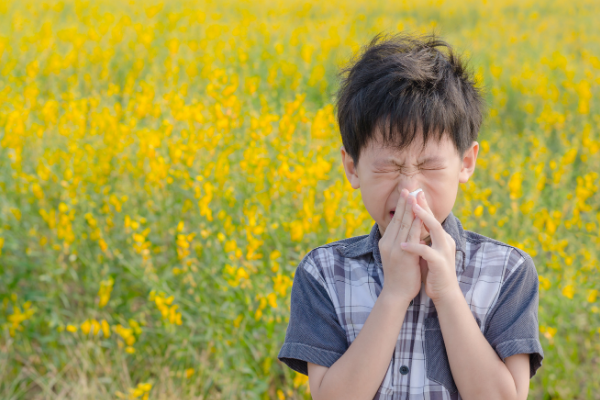By Dr. Jennifer Ragsdale
Springtime in Middle Tennessee brings beautiful weather, blooming trees, and suddenly the hillsides are bursting with green! Although it is such a pretty season, not everyone enjoys it equally. Many people in Middle Tennessee suffer from seasonal allergies and often these allergies begin to develop in childhood.
Allergies occur because the individual’s immune system is reacting to something, or an “allergen“. Allergens can include pollen, dust, mold, animal dander, smoke, foods, etc. It is not surprising that springtime pollen can trigger an allergic response in many people, especially when you see the dense green substance covering vehicles every morning. Oftentimes, the tendency to have seasonal allergies runs in the family. Many parents will note that their child develops allergies to the same types of things in the environment that trigger the parent’s own allergies.
Symptoms of allergies can be very similar to having a cold. These symptoms can include sneezing, clear nasal drainage, cough, headache, sore throat and itchy, watery eyes. Allergies can cause the skin around the eyes to look puffy and dark. Other areas of skin can also be affected by allergies and dry, itchy, red patches may develop. One main difference between allergies and the common cold is that allergies are not usually accompanied by a fever.
Controlling your child’s allergy symptoms can be challenging. However, there are some simple things that parents can do to help their child who is experiencing seasonal allergies:
- Wash pollen off of their skin. Wash children’s hands and faces off immediately after they finish playing outside.
- Bathe your child nightly when pollen counts are high.
- Keep windows closed in the car and in the home to reduce exposure to pollen.
- Launder your child’s bed linens weekly.
These measures will help reduce your child’s contact with pollens that may be triggering their allergic response. In addition to controlling the environmental triggers, there are several medications that can help alleviate some to their problems caused by allergies. Many of these medications are available over the counter. For example, there are antihistamines, decongestants, nasal sprays and eye drops. There are prescription medications as well. Please contact your pediatrician to determine the best approach for your child.
Lastly, allergists are medical specialists who can help determine exactly which allergens or foods may be causing the problem for your child. Allergies can be a debilitating issue for some individuals and your pediatrician can help you decide if your child needs to see such a specialist.

